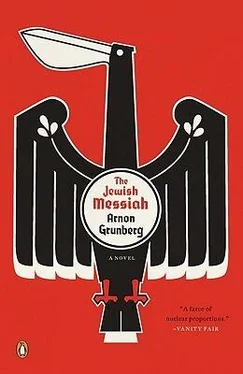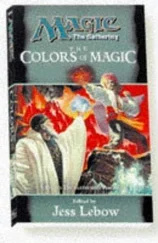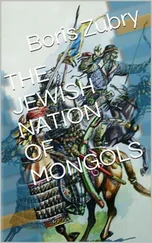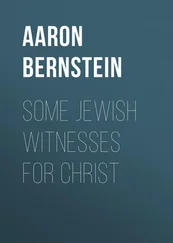“You were going to come up with a joke for me, right? A dirty one — then I’ll translate it for you, and you can go around telling it without anyone knowing what you’re saying. Have you got one? It’s got to be really filthy. One with a clit in it, for instance.”
Xavier didn’t know any jokes with clits in them.
“I haven’t quite gotten around to that yet,” he said. “But there’s something else, and, well, sorry to intrude like this, but I’d like to take your picture.”
“Who?”
“You.”
“Me? Take my picture? Why?”
Xavier had to speak quietly. He was afraid his mother would hear, and that would only increase her suffering. He had begun skirting the truth for his parents’ sake. Things that made your parents suffer had to be tucked away like Easter eggs; otherwise their lives would be ruined. Later, you had to alleviate the suffering of your husband or wife, and then that of your children, and so you spent your entire life alleviating the suffering of others.
For the time being, though, Xavier limited himself to the suffering of his parents, and that of the Jews.
“Because you’re good-looking,” he told Awromele.
“Me, good-looking?”
Good-looking is always good, Xavier thought. Who doesn’t want to be good-looking? Besides, Xavier thought, Awromele really was good-looking, young and fresh, like an angel with those curls, which wasn’t something you could say about Awromele’s father. Angels don’t smell of food that’s been on the stove for twenty-four hours.
“Yes, extremely good-looking.”
“Says who?”
“What?”
“That I’m good-looking.”
“Nobody. I figured it out for myself.”
“Oh. How?”
“By…” Xavier had to swallow a little excess saliva. “By looking at you. But I need to ask you something. That is, if I’m not intruding, if you’ve got the time.”
Xavier felt he was starting to sweat, and began speaking louder in spite of himself. His mother was downstairs, soaking raisins for the apple pie. She was good at pies. Just like her mother before her, who had baked pies in Saxony. Even when the news from the Eastern Front had become grimmer, she had gone on kneading the dough and stirring the batter.
“I’ve got some time,” Awromele said. “What was it you wanted to ask?”
“What I just said, whether I could take your picture.”
“You already said that, yeah.”
Xavier grew even more nervous. Nothing ruffles an enthusiastic optimist more than a closemouthed Jew.
“Are you still there?” Xavier asked.
“Hello,” Awromele said. “Yes, I’m still here, I’m just thinking it over.”
The line seemed to fall dead again.
“What are you going to do with it?” Awromele asked at last.
“With the photo?”
“Yes.”
“Keep it. Exhibit it, later on.”
“Exhibit it. Here in Basel?”
“For instance. Or else in Zürich. You’re good-looking. These are going to be art pictures. Architecture is the king of the arts, second only to music. I read that somewhere. But photography is the queen. I want to get the emotion across.”
“Emotion? What emotion?”
“Art tries to get emotion across. When I see you I feel an emotion, and I want to get that across. So other people will feel that emotion, too. Suffering is the emergency exit of beauty.”
“Do I have to take my clothes off?”
“No, why would you do that?”
“Oh, just wondering.” Awromele sounded disappointed. “But you’re saying you don’t have a joke for me, one I can translate, a joke with a clit in it? Or something like that?”
Xavier promised he would bring a joke like that along with him when they met for the picture, maybe even more than one joke. Xavier would have promised anything just to hear Awromele say yes: the heavens, the stars, a nation, a kingdom.
They agreed to meet the next day on the Mittlere Rheinbrücke.
Downstairs, in the kitchen, Xavier’s mother was still soaking raisins. She was wearing an apron with pictures of all kinds of vegetables on it.
She looked at her son as he came in and picked a raisin from the bowl, but said nothing. He laid a hand on her shoulder, as he often did to comfort the orphan who was his mother.
“Xavier,” she said after he had eaten three raisins, “back then everything was different. What is done is done. It wasn’t pleasant for anyone, not for my parents, either. That’s all in the past now; we have to keep our eyes on the future.”
They Had Nuclear Weapons, Too
BEING A METICULOUSyoung man, Xavier had not only bought a camera, an Olympus, but also a joke book. He read it twice, from cover to cover, but the word “clit” was nowhere to be found. The jokes didn’t make him laugh, either. Maybe it was just him — he couldn’t rule out the possibility that he had no sense of humor. Humor, he’d learned at school, was born of deficiency. Once he finally started to suffer, the humor would take care of itself.
When the appointed time came, he walked to the Mittlere Rheinbrücke. By heart he had learned four jokes that could pass for smutty.
As he was walking through Basel with his camera, the second flash of inspiration came to him. It mustn’t stop at photography; people would say that was only a pose. They wouldn’t take his attempts seriously, would say that others had done it before, that these days a project like his was simply a way to play it safe, that if he was going to do it he should have done it fifty years ago — which was easy enough for them to say, because he hadn’t even been alive then. He may have been born under a lucky star, but at least he knew what made people tick. Their main goal was to not have to feel their own pain. A goal that often didn’t pan out.
What they forgot — his father, for example — or overlooked — his mother, for example — was that once you were dead you didn’t feel anything anymore, not even pain. Xavier wanted to combine the advantages of life with those of death. Therein lay comfort. Great minds before him had lived in and strolled through Basel. They inspired him, seized him by the hand, and drew him in the right direction.
He had to comfort the Jews. No halfway measures, not an adhesive bandage here, a bit of mercurochrome there. To comfort and to comfort well — that for starters — then the rest would come of its own accord. Xavier felt a deep and formidable sympathy for them. For personal reasons, but also in general, for reasons of science.
The Christians had Jesus, the capitalists had profit maximization, the Buddhists could gradually melt into Nothingness, the socialists could uplift the wage slaves — three evenings a week, in the open air when the weather allowed — but the Jews had nothing. No messiah, a God who never showed, and everyone hated them, perhaps not as openly as before, a bit more sniggeringly, in the men’s room at the coffeehouse, behind drawn curtains, at meetings where the press was not invited, but they hated them nonetheless. There had to be a reason for that.
What’s more, you also had Jews who hated themselves, Xavier had read in an encyclopedia, the self-hating Jews. When it came to comforting, those were the ones who should be first in line.
He wasn’t exactly sure how to go about it. He hadn’t comforted all that many people in his life. He’d tried to soothe his mother’s pain, but her pain was chronic, so soothing it didn’t help much. It even seemed to irritate her. She would push him away and say, “Stop slobbering all over me, Xavier, you’re too old for that now.” And his father would say, “Keep your hands off your mother — that’s unhealthy.”
But he wasn’t about to be discouraged. The desire to comfort was a part of him, the way tragic humor is a part of the clown.
Читать дальше












